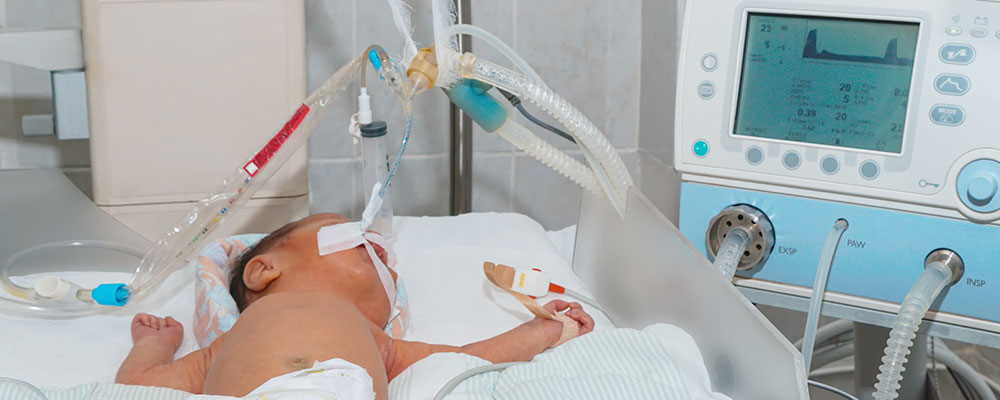Chicago, IL 60601
FREE CONSULTATIONS 312-462-4200
TOLL FREE 833-462-4200
Hypoxic Ischemic Encephalopathy

Understanding Birth Injuries Involving HIE and Intrapartum Asphyxia
A wide variety of complications can occur during the birth of a child. These complications can be especially serious if they cause injuries to an infant's brain, which can lead to conditions such as cerebral palsy. Hypoxic ischemic encephalopathy (HIE) is one type of brain damage that can be especially harmful, and it can lead to long-term disability if it is not recognized and treated quickly.
What Is Hypoxic Ischemic Encephalopathy?
Hypoxic means a lack of oxygen, ischemic means a restriction of blood flow, and encephalopathy means a condition affecting the brain. HIE refers to brain damage that is caused by oxygen deprivation because not enough blood flows to the baby's brain.
Hypoxic ischemic encephalopathy can be especially dangerous, because in addition to the damage to brain cells that occurs because of a lack of oxygen, additional damage can take place when normal blood flow resumes. This is known as "reperfusion injury," and it occurs because toxins released by damaged brain cells are spread to other brain cells, which may also die and release more toxins. This chain reaction can spread over multiple hours or days and lead to extensive brain damage.
Causes of HIE
Oxygen deprivation during birth can occur for a wide variety of reasons. Doctors, nurses, and hospital staff should be aware of the risk factors for HIE and provide proper fetal monitoring during labor and delivery. Some issues which may lead to hypoxic ischemic encephalopathy include:
- High-risk pregnancy - Conditions may exist that require close monitoring during pregnancy to ensure that an infant is getting enough oxygen. Risk factors include gestational diabetes, preeclampsia, or maternal obesity.
- Placenta complications - Oxygen flow can be restricted if the placenta detaches from the uterus (placental abruption), is attached to the uterus close to the cervix (placenta previa), or cannot deliver enough blood to the infant (placental insufficiency).
- Uterine rupture - If the uterus tears during delivery, this can lead to hemorrhaging of blood, causing a drop in the mother's blood pressure that may affect the flow of blood to the infant. Rupture can occur if a vaginal birth is attempted when the mother has uterine scarring from a previous cesarean section. In these cases, doctors should closely monitor the birth and be prepared to take immediate steps to protect the health of the mother and the child.
- Umbilical cord issues - Anything that blocks or impedes blood flow in the umbilical cord can cause a lack of oxygen in a baby's brain. These complications may include umbilical cord prolapse, infections, inflammations, compressions, or knots, or the cord becoming wrapped around the child's neck.
- Meconium aspiration - If a baby breathes in particles of stool during labor and delivery, this may block their airways, resulting in a lack of oxygen.
Treatments for Hypoxic Ischemic Encephalopathy
When asphyxia occurs during birth, medical staff should take immediate steps to ensure that the baby can properly breathe and receive oxygen to the brain. A mechanical ventilator may be needed to provide oxygen, and medications or other interventions may be necessary to minimize brain swelling, control blood sugar levels, maintain proper blood pressure, and control seizures.
In addition, therapeutic hypothermia may be used to cool the baby's brain. This can help prevent the spread of toxins and prevent additional brain damage from occurring.
Addressing the Effects of HIE
If your child has experienced hypoxic ischemic encephalopathy during birth, this can have a long-lasting or even permanent impact on their health and well-being. Many children with HIE will also be diagnosed with cerebral palsy, and they will likely require extensive care and treatment throughout the rest of their lives.
At the Birth Injury Law Alliance, we can help you understand the effects that HIE may have on your child's life, and we will work with you to ensure that your family will have the financial resources you need. To schedule a free consultation and case evaluation, contact us at 312-462-4200.





